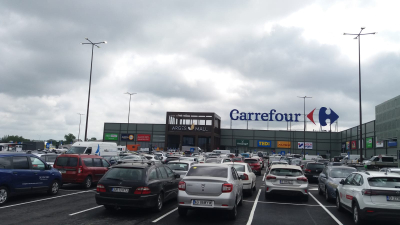The new fundamentals of mergers and acquisitions market have triggered the expansion of distressed asset funds in many regions and changed targets of traditional fund management houses.
Mihai Sfintescu said the majority of fund management houses with tradition in growth and expansion capital would prefer to stay in this area to consolidate the brand and show a coherent strategy to investors and entrepreneurs.
“However, there will be cases when some of them will tap the distress assets segment which is currently in full development, but I don’t think that the most appropriate move is to change strategy every 2-3 years”, Sfintescu added.
On the other hand, many distressed assets will eventually be bought by distressed-asset focused companies in an effort to boost market share, Sfintescu continued.
“There are regional distressed funds, active in Central and Eastern Europe. I expect them to show an increasing interest in Romania and to open subsidiaries in order to grab a share in a growing market”, representative of 3TS Capital Partners commented.
“We haven’t seen the worst of the crisis yet”
For the time being, private equity funds lag in a wait-and-see mode, especially when taking a look at Romania.
Sfintescu says he expects to see more M&A deals since the second half of the year, but the market is still going to run at low speed until new hopes of revival spring out. “An acceleration of the market activity is possible in 2010”.
As a reaction to the shaky economic grounds, and the grey clouds of crisis, the average time horizon of an equity position will rise by approximately 2 years, said Sfintescu, adding that companies in the sector deemed as cyclical would probably last longer in a trader’s portfolio, in a bid to take the brunt of the future economic rebound.
The sectors influenced at a lower margin by the economic cycles are health, utilities and food.
The adjustment of valuation multiples in the cyclical sectors are quite broad. “Their results follow a downtrend where the inflexion point is till out of sight, for example in construction, technical consumer goods and financial”, said Sfintescu.
“We are still at the beginning of the crisis, but every crisis will eventually come to its end”.
Citeste si:
Calculator Salariu: Află câți bani primești în mână în funcție de salariul brut »
Te-ar putea interesa și:


















































































![HR [PLAY] Tech Workout - 11...](https://www.wall-street.ro/image_thumbs/thumbs/973/973fe0a3888d417feff63de42e814180-260x260-00-65.jpg?v=1713957717)









